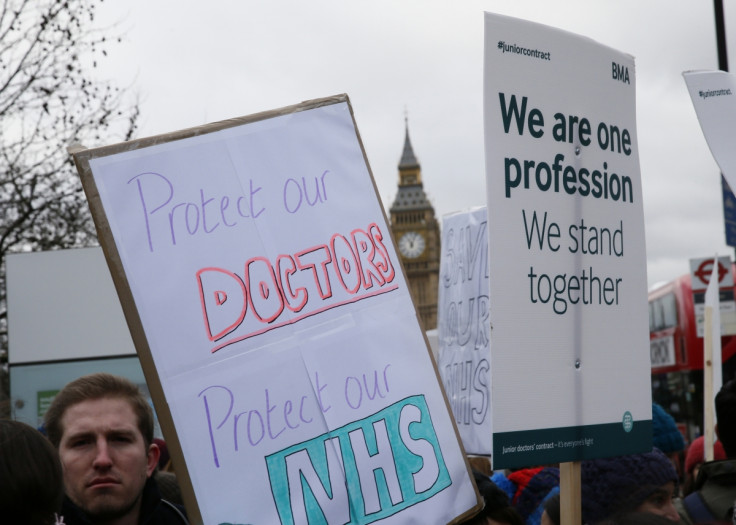Junior doctors' strike: Settlement hoped for this week to head off more industrial action

There are growing hopes that a deal can be done to avoid a second day of industrial action by junior doctors, with talks this week reportedly expected to produce a settlement to end the four-month dispute.
The first stoppage which ends at 8am on Wednesday 12 January, saw 4,000 operations cancelled and junior doctors join picket lines in the first strike by the medics since 1975.
But sources at the British Medical Association, NHS Employers and the Department of Health have said their organisations are keen find a resolution to the impasse, the Guardian reported.
It is hoped that Sir David Dalton, whom health secretary Jeremy Hunt brought in last week as the government's new chief negotiator, can break the deadlock.
"Nobody wants to go through all this nonsense [a strike] again. So yes, there's a degree of optimism. With the strike over, we have a cautious optimism that we can [now] make some progress," an official close to the talks told the newspaper.
NHS England said that 38% of junior doctors did come to work but later it emerged that the figure included those working in emergency care who were not taking action.
The health secretary said the strike was unnecessary and that his goal was to ensure that junior doctors were working at weekends, citing statistics that showed this was the time people with serious conditions such as strokes were more likely to die.
"So the right thing to do is to sit round the table and talk to the government about how we improve patient safety and care – not these very unnecessary strikes," Hunt told the BBC.
The BMA said the strike sent a "clear message" to the government.
"We deeply regret the level of disruption caused, but this is a fight for the long-term safety of patients and junior doctors' working lives," said Dr Johann Malawana, chair of the British Medical Association (BMA) junior doctors' committee.
A second strike is due to take place on 26 January. Both January strikes will see hospitals being emergency staffed, whereas the third, planned for 10 February, will be a "full walkout", with no emergency care being put in place.
© Copyright IBTimes 2025. All rights reserved.





















